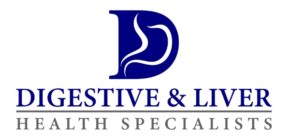Background of Dietary Supplements
Medicine and religion were connected in the ancient past. In most civilizations investigated, local priests provided medicinal care when citizens fell ill. Through trial and error, priests rapidly discovered that administering a potion prepared from animal parts, plants, tree bark, or herbs improved the condition of a large number of patients. Occasionally, they would discover a consistently effective medication, such as aspirin.

(6)
The priests and researchers of the time derived aspirin from the bark of the white willow tree. Initially used as an antipyretic and anti-inflammatory, aspirin became a milestone drug in preventing cardiovascular and cerebrovascular disorders due to its antiplatelet characteristics[1]. Unfortunately, the majority of remedies offered by ancient medicine men and priests were ineffective. Neither the provider nor the patient was aware of this at the time. Those who did improve were of the belief that a miracle had occurred, and thus ineffective potions gained legitimacy and currency in old folklore. To an extent, some of these beliefs continue even to this day. Humans have a strong, almost innate desire to believe that medications, vitamins, and herbs may confer excellent health benefits and even longetivity.
Placebo Effect and Dietary Supplements
There’s a sarcastic saying that a human’s need to take medications is the primary distinction between man and animals. To further understand this, we must consider the placebo effect, which states that if a person truly believes a good impact is occurring, they will be confident that it is. The term placebo is derived from the Latin for “I will please”.
Thus, placebos are often regarded as fake treatments administered by providers to “please” or soothe nervous patients. Even when providers were confident that certain medications might actually be doing some good, they frequently could not escape the notion that this approach was, at best, fake and, at worst, trickery[2]. The Scientific Method is now used to help eliminate the issue of the placebo effect in modern medicine. Personal bias, whether on the part of the provider or the patient, has no place in determining if a heart valve, a drug, or, for that regard, a herb or vitamin is genuinely effective for the majority of those in need.
Modern Science and Dietary Supplements
The Scientific Method has led to numerous advances in modern society such as a safe water supply, public health measures, seat belts and airbags, computers, telephones, and even the Internet. The advances in made in modern medicine are breathtaking when considered. This includes medications that have eradicated diseases and devices that have drastically reduced surgical recovery times. We now have a longer life expectancy in part due to scientific research into fitness and healthier eating habits. Nonetheless, we humans frequently purchase and consume alternative medicine supplements purely based on the advice of a friend or a young clerk at a health food store. Fortunately, physicians have gained a great deal of knowledge on this subject.

(5)
Role and Benefits of Dietary Supplements
Supplement Fact labels on dietary supplements show active components along with additional ingredients such as fillers, binders, and flavorings. Manufacturers commonly suggest a serving size, but your healthcare professional may recommend a different amount depending on patient needs.
Some dietary supplements can help individuals receive enough critical nutrients if they do not consume a balanced diet. However, supplements cannot replace a good diet’s health benefits.
Some dietary supplements that may improve overall health include:
- Calcium and vitamin D help maintain healthy bones.
- Specific birth abnormalities are reduced by folic acid.
- Fish oil omega-3 fatty acids may aid in preventing and controlling heart disease.
The field of complementary and alternative medicine is constantly expanding. Alternative medicines fall inside the FDA (Food and Drug Administration)-defined category of Dietary Supplements[3]. These are distinct from prescription and OTC medications we commonly take for ailments. The FDA has stringent regulatory requirements and control for those pharmaceutical products. However, the FDA has no regulatory or monitoring authority in the Dietary Supplements field. Thus, a corporation can package and sell any plant, vitamin, or combination. While corporations should avoid making health claims, they continue to do so in a manner that can be very misleading to patients.[4].
Thus, the lesson is to use caution. We urge our patients to contact us with any questions or concerns regarding dietary supplements.
References:
[1] Y. Zhang, “Is Aspirin an Effective Preventive Medicine for Firefighting-Induced Acute Inflammation?," J. Occup. Environ. Med., vol. 61, no. 10, p. e432, Oct. 2019, doi: 10.1097/JOM.0000000000001680.
[2] A. Harrington, The Placebo Effect: An Interdisciplinary Exploration. Harvard University Press, 1999.
[3] J. T. Dwyer, P. M. Coates, and M. J. Smith, "Dietary Supplements: Regulatory Challenges and Research Resources," Nutrients, vol. 10, no. 1, p. E41, Jan. 2018, doi: 10.3390/nu10010041.
[4] J. A. Levitt, "Regulation of Dietary Supplements: FDA's Strategic Plan,” Food Drug Law J., vol. 57, p. 1, 2002.

